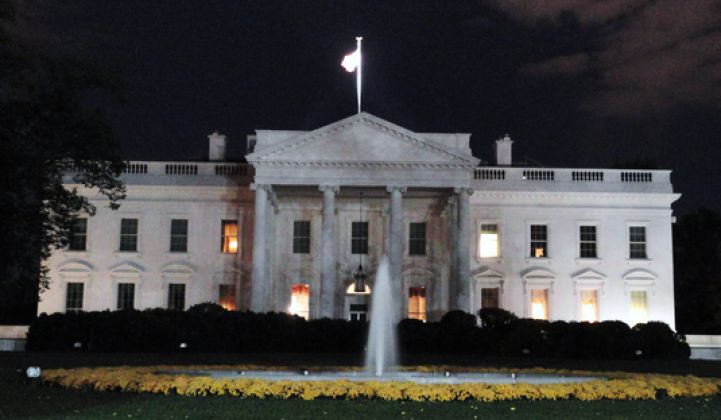When President Obama stood before Congress and delivered his State of the Union address in February, he talked about a wide range of energy and climate issues. But he declared only one real goal: double America's efficiency over the next decade and a half.
When Ernest Moniz delivered his first speech after getting sworn in as energy secretary in May, he chose to give it an an energy efficiency conference -- talking almost exclusively about why efficiency should be "way, way up" the priority list at the Department of Energy.
And as Congress reconvenes this fall in preparation for "a whale of a fight" over the debt ceiling and budget, one of the only hopes for bipartisan action is a wide-ranging efficiency bill that would create strong new energy performance standards for commercial buildings, federal facilities and industrial plants.
It seems efficiency has become the one glimmer of hope in Washington for getting anything substantive done on energy this year.
As lawmakers continue to challenge the Obama administration over Keystone XL, EPA rules for power plant CO2 emissions, and tax credits for wind, energy has become as divisive as any issue in national politics. And although efficiency has seen its share of pushback -- Representative Marsha Blackburn (R-TN) recently mourned that President Obama is "coming after our ceiling fans" -- the issue has stayed above partisanship more so than any other issue.
"Efficiency seems to be the only real safe zone," said Katherine Hamilton, an energy policy expert and founder of 38 North Solutions.
However, nothing is truly safe in Washington -- even if it has strong bipartisan support.
Earlier this summer, efficiency advocates rejoiced when Senate leadership put the Shaheen-Portman energy efficiency bill at the top of the priority list for voting this summer. The bill was set to hit the floor this week, but was delayed due to debate over military action in Syria. There are now worries that delaying too long could push it up against a debate around the budget, which may derail action entirely.
Supporters say they're hopeful that the Shaheen-Portman bill won't get hung up as it did last year, when lawmakers couldn't agree on controversial amendments.
"There's always a worry that this won't happen," said one efficiency lobbyist speaking on background. "But there's more of a commitment than last year. By putting the bill on the calendar in the first place, Senate leaders show they're willing to find the time to get it done."
Along with worries about the timing of a vote, there are concerns that a slew of amendments -- most notably one approving the controversial Keystone XL pipeline -- would make the bill unpalatable.
"As long as Majority Leader Reid can hold off 'poison pill' amendments and find the floor time, the Shaheen-Portman energy efficiency bill should make it through the Senate," said Katherine Hamilton. "The House remains less certain, but an Energy and Commerce GOP staffer assured me that energy efficiency is one of those things that most members can agree on. I would expect some moderate energy efficiency measure to make it to the president in the next few months."
Even if Congress ends up punting the bill, it won't be the end for efficiency this year. The Obama administration has made efficiency standards a central piece of its climate plan.
There are currently more than a half dozen delayed standards for appliances and industrial equipment awaiting to be finalized. Last month, DOE promised to move four of them forward as quickly as possible -- and two have already been finished. In addition, the administration is also working on executing previous executive orders on industrial energy efficiency, combined heat and power and federal building efficiency targets.
And although the window for getting strong efficiency legislation through Congress is starting to close, efficiency advocates aren't yet losing hope.
"Efficiency is the one train that has any chance of leaving the station in Washington," said Stephen Cowell, CEO of Conservation Services Group.
Watch Ernest Moniz's remarks on energy efficiency, his first after being sworn in as energy secretary:



